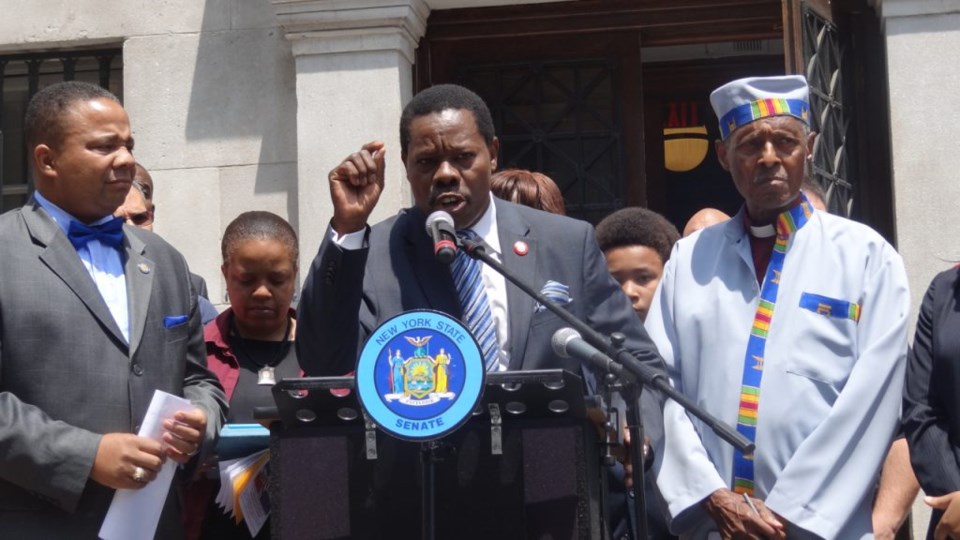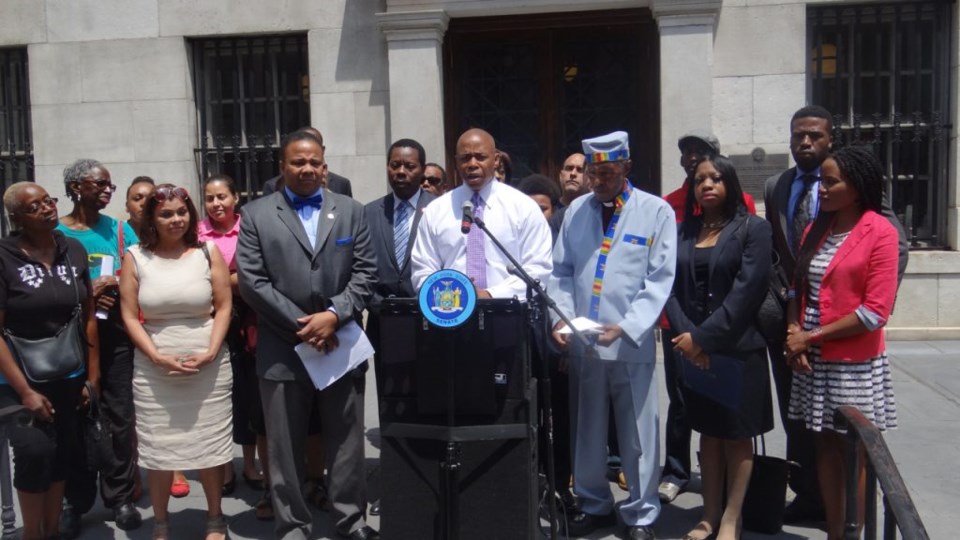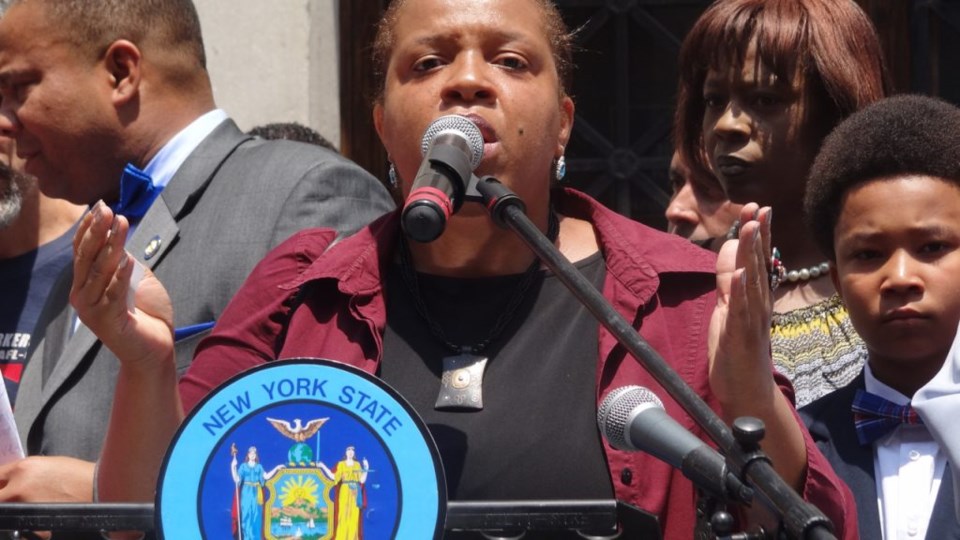
On Wednesday, the government of the Dominican Republic put into action a plan to "repatriate" potentially hundreds of thousands of residents with Haitian heritage, after a controversial court ruling from 2013 retroactively stripped them of Dominican citizenship, unless they had at least one parent with "Dominican blood."
Legally, the law applies to any foreigner who arrived in the country after 1929. But in reality, the ruling overwhelmingly affects people of Haitian descent.
Should this be considered ethnic cleansing (on par with what Hitler did with the Jews)?
"Absolutely," said Professor Sophia Cantave, a Haitian-Dominican and member of Haitian Women for Haitian Refugees, at a press conference Friday afternoon.
Cantal joined State Sen. Jesse Hamilton, Brooklyn Borough President Eric Adams, City Councilmember Mathieu Eugene, the Rev. Herbert Daughtry and at least a dozen members of Brooklyn's Haitian-American community outside the steps of Brooklyn Borough Hall in a show of solidarity with Haitian-Dominicans who are now threatened by mass deportation from from their native D.R.
Friday's press conference was pulled together by Sen. Hamilton, whose district includes a large potion of the city's Haitian-American population.
"This is an international crisis, and we're here today to speak out against that," said Hamilton.
City Councilmember Eugene, the first Haitian-American elected to the NY City Council, called on both Dominican- and Haitian-Americans to join forces and speak out against what he called a "human rights crisis" that allows for sanctioned discrimination against people, based solely on the color of their skin.
"Throughout history, people have always moved around from country to country," said Eugene. "We speak English in the United States because people came to this country from another country, and we inherited that language. They speak Spanish in Dominican Republic because people from Spain went to that country.
"But now they are saying, even if you were born in Haiti, you must leave because of the color of your skin? This is not right; this is discrimination. Haiti is the backbone of the Dominican economy. We are all people and we have to stand against discrimination."
Adams made an appeal to both populations of Haitians and Dominicans in Brooklyn, asking them to align their hearts and time around this issue. He added, he will be sending a letter to the presidents of both countries inviting them to iron out their crisis at Borough Hall.

"Brooklyn is not only the Port-au-Prince of America, but it is also the Santo Domingo of America," said Adams referencing the fact that Brooklyn has the largest population in the country of residents from Haiti and D.R. "Brooklyn Borough Hall will be a place where people can come, iron out and discuss their differences. It is important we embrace this issue."
Cantave made the strongest and most fiery case of the afternoon, pointing out that just as you have a right to ancestry and nationality, you have a right to citizenship, which should be the place you were born.
"A birth certificate is a birthright, and ethnic cleansing is what is going on right now," said Cantave. "People are being are targeted right now because they are of Haitian descent or look Haitian. And when we say "look Haitian," you know what that means-- it means people who look like they are descendants of Africa.

"If we are human beings who believe in human rights, then what are we going to do in the face of this? Is this going to be the model for all immigrants everywhere? Will we allow this to stand?
"What we want is justice-- the justice that we are entitled to as human beings," said Cantave. "There has to be accountability; they have to feel our pressure. Just standing here will not be enough. No, to Dominican tourism. No, to sending our U.S. dollars that legitimizes racism. We are not that country, and we cannot start now."



